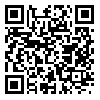Volume 28 - Supplementary
IBJ 2024, 28 - Supplementary: 341-341 |
Back to browse issues page
Download citation:
BibTeX | RIS | EndNote | Medlars | ProCite | Reference Manager | RefWorks
Send citation to:



BibTeX | RIS | EndNote | Medlars | ProCite | Reference Manager | RefWorks
Send citation to:
Aghaei Meybodi F, Marvastinia G. Associations Between Maternal Health Literacy, Exclusive Breastfeeding, and Infant Weight Monitoring. IBJ 2024; 28 :341-341
URL: http://ibj.pasteur.ac.ir/article-1-4778-en.html
URL: http://ibj.pasteur.ac.ir/article-1-4778-en.html
Associations Between Maternal Health Literacy, Exclusive Breastfeeding, and Infant Weight Monitoring
Abstract:
Introduction: Health literacy means cognitive and social skills that motivate and enable people to acquire, understand, and use health information to promote and maintain good health. This study identified and evaluated the relationship between maternal health literacy, exclusive breastfeeding, and infant weight gain.
Methods and Materials: In this cross-sectional descriptive study, 292 women with full-term babies referred to health centers in Yazd were examined from April to July 2020. The Iranian Health Literacy Questionnaire assessed maternal health literacy four and six months after birth. Women's health literacy was divided into four distinct areas: inadequate, problematic, sufficient, and excellent. The mother was asked about the status of breastfeeding in the fourth and sixth months of birth, and the appropriate weight of the baby was checked using a weighting chart. The results were analyzed using SPSS 18 software.
Results: The average age of the women was 22.58, and the average health literacy score was about 98, which was evaluated as sufficient. Participants classified as adequate or excellent health literacy were approximately two times more likely to complete exclusive breastfeeding (p = 0.025; χ2 = 4.810; df = 1). Correlation coefficients showed a weak and statistically significant relationship between all four indicators of the mother's health literacy, her ability to obtain, understand, evaluate, and apply information, with increasing baby weight
(p = 0.01).
Conclusion and Discussion: The findings of this study indicate that woman's health literacy is an influential factor that can have an immense effect on breastfeeding behavior and weighing the baby.

Methods and Materials: In this cross-sectional descriptive study, 292 women with full-term babies referred to health centers in Yazd were examined from April to July 2020. The Iranian Health Literacy Questionnaire assessed maternal health literacy four and six months after birth. Women's health literacy was divided into four distinct areas: inadequate, problematic, sufficient, and excellent. The mother was asked about the status of breastfeeding in the fourth and sixth months of birth, and the appropriate weight of the baby was checked using a weighting chart. The results were analyzed using SPSS 18 software.
Results: The average age of the women was 22.58, and the average health literacy score was about 98, which was evaluated as sufficient. Participants classified as adequate or excellent health literacy were approximately two times more likely to complete exclusive breastfeeding (p = 0.025; χ2 = 4.810; df = 1). Correlation coefficients showed a weak and statistically significant relationship between all four indicators of the mother's health literacy, her ability to obtain, understand, evaluate, and apply information, with increasing baby weight
(p = 0.01).
Conclusion and Discussion: The findings of this study indicate that woman's health literacy is an influential factor that can have an immense effect on breastfeeding behavior and weighing the baby.

| Rights and permissions | |
 |
This work is licensed under a Creative Commons Attribution-NonCommercial 4.0 International License. |







.png)
